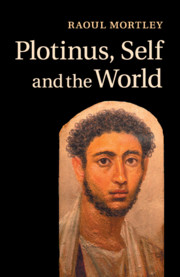Book contents
- Frontmatter
- Contents
- Preface
- Introduction
- 1 The individuated self and memory
- 2 Memory and forgetting
- 3 Ignorance, love and play
- 4 Plotinus’ Eros
- 5 The self: ‘and we too are kings’
- 6 Being and having
- 7 Self-knowledge
- 8 Art and the seduction of beauty
- 9 Face, image and the self
- Conclusion
- Bibliography
- Index
- References
Introduction
Published online by Cambridge University Press: 05 October 2014
- Frontmatter
- Contents
- Preface
- Introduction
- 1 The individuated self and memory
- 2 Memory and forgetting
- 3 Ignorance, love and play
- 4 Plotinus’ Eros
- 5 The self: ‘and we too are kings’
- 6 Being and having
- 7 Self-knowledge
- 8 Art and the seduction of beauty
- 9 Face, image and the self
- Conclusion
- Bibliography
- Index
- References
Summary
We will begin by explaining the approach and outlook which has led to the writing of this book, and we seek here to raise some of the main themes of the work and to sum up what might be its contribution.
For Plotinus the individual self is placed in a whole, which is the All: this is the world of the self. It has numerous encounters, or touch points within this world – which range from loving to having, for example. This intersecting with its environment is as true for the physical body as it is for the highest reaches of the spirit, at which point the limits of the self are truly explored. The relationship between the self and its ambient reality is many-sided, and it is impossible to draw a single line around the periphery of the self.
‘The Good is gentle and kind and gracious, and is present to anyone as he wishes.’ There is no rigidity about boundaries here, nothing schematic about the limits of the self. The Good may come and go, but this is partly dependent on the wishes of the individual.
- Type
- Chapter
- Information
- Plotinus, Self and the World , pp. 1 - 13Publisher: Cambridge University PressPrint publication year: 2013

